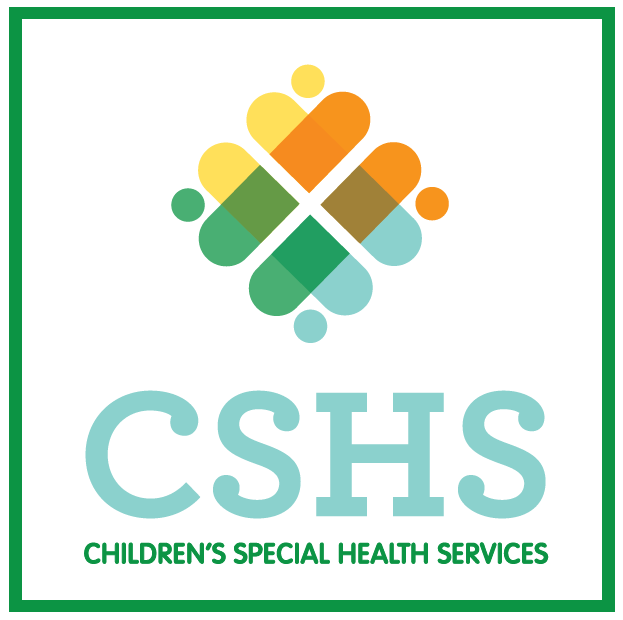Support for Children and Youth
CSHS Financial Assistance: Children’s Special Health Services has funds to help families with out of pocket expenses. If you qualify, we can pay up to $2,000 annually for expenses related to your child’s health condition. For more information, visit the financial assistance page, email us at cshs.mt.gov, or call 1-800-762-9891. Email is the best way to reach us during shelter in place.
MonTECH: Montana's free assistive technology (AT) and adaptive equipment loan program. The program houses equipment Montana families can borrow, and provides free training on that equipment (in person or online). For more information, visit the MonTECH website or MonTECH Facebook page, email at montech@mso.umt.edu or call 406-243-5751.
The Bright App: The Bright App can help you find a mental health provider for you or your child. You can search by specialty, location, gender, and accepted insurance.
Comprehensive COVID 19 Resource List: This is a comprehensive resource list that was built by the team at Transitions to Adulthood Center for Research at UMass Medical School. This list was created to support youth, young adults, families, colleges, educators, employers and their supporters. To view the spreadsheet, visit the resource guide.
Child Care Connections: This page has a variety of great resources for families, children, and child care providers to stay safe, healthy, financially sound during COVID-19. There are also a number of activities and books for children to stay busy and educate during this time.
Child Mind Institute: The Child Mind Institute offers telehealth evaluations and treatment for ADHD, mood disorders, anxiety disorders, autism spectrum disorders and learning disorders. They also offer coping advice and tools for parents and children during this time. For more information visit the Child Mind Institute website.
Social Network for Early Childhood Professionals: MyPeers is a virtual learning network where you can brainstorm, exchange ideas, and share resources with early childhood colleagues from across the country. It was created by the office of Head Start to help connect you and share with people who share your interests and program responsibilities. These informal connections can be a great source of encouragement and insight. There are more than 40 My Peers communities. Go to MyPeers – Social Network for Early Childhood Professionals to find out more about this Early Childhood Learning and Knowledge Center.
Zero to Five: Zero to 5 offers a list of Montana and community specific comprehensive resources to support children, families, and providers during this time. These resources include free internet/phone provider resources for Montana families, and support during school closures such as free lunches, or remote activities. For more information visit the Zero to Five website or call (406) 513-1115.
Alaska Department of Human Services: Circle of Support plan. In case caregivers get sick with COVID-19, we can help with the planning process. Check out our guides that can help walk you through identifying your Circle of Support (a group of people that you can call on to provide child care), what to include in your plan, when to activate your plan, and how to find help outside your circle. There are also CDC resources for families with children. Create your plan and find resources.
Montana State University-Billings; Work Incentives Planning and Assistance Project (WIPA): The Montana State University Billings WIPA program has been awarded a grant as part of the Ticket to Work and Work Incentives Improvement Act that was established in 1999. The goal of the WIPA program is to assist Social Security Disability beneficiaries to make informed choices about work and to support working beneficiaries to make a successful transition to self-sufficiency. For more information, check out the Montana Center for Inclusive Education website.
Always Dancing Project: These Zoom classes are free to children with disabilities, and a fun way to exercise and dance during this pandemic. The classes are taught by high school students who have a passion for dance and a love of teaching children with disabilities. Classes will be held through November 21st and resume in January 2021. For more information on these fun and free classes, please visit Always Dancing Project.
Montana Family to Family Health Information Center: We have just received the 2020 Cares Act Telehealth Award and have been granted the opportunity to allow families to borrow laptops, tablets, headsets with microphones and hot spots (for homes with spotty internet access). Families will be able to borrow these devices so they can better participate in therapies and medical appointments remotely. In exchange for borrowing these items, we ask families caring for someone with a disability to participate in a brief survey. There are seven questions, and no identifying information is required apart from state and zip code. The questions all pertain to issues families may encounter in accessing telehealth (I.E. don’t have a device, don’t have internet, don’t understand how to use a device or ask for a telehealth appointment). It only takes 3-4 minutes to take the survey. Contact the Montana Family to Family Center to get the survey. To borrow equipment, please visit the University of Montana MonTECH website for more information.
Support for Children and Youth who are Struggling
This is a distressing time for many of us and may be particularly difficult for struggling youth and those with mental health concerns. There is support available 24/7. Please reach out if you are feeling hopeless or suicidal, or you need help supporting a loved one.
Disaster Distress Helpline: 1-800-985-5990 and TTY 1-800-846-8517 or text TalkWithUs to 66746
The Montana Suicide Prevention Lifeline: 800-273-TALK (8255) or text “MT” to 741741
Montana Warmline: 877-688-3377
The warmline is not a crisis line. It is a peer support line for those looking for support in recovery.
Taking care of your emotional health
Boys Town National Hotline for Adults and Youth: 1-800-448-3000


